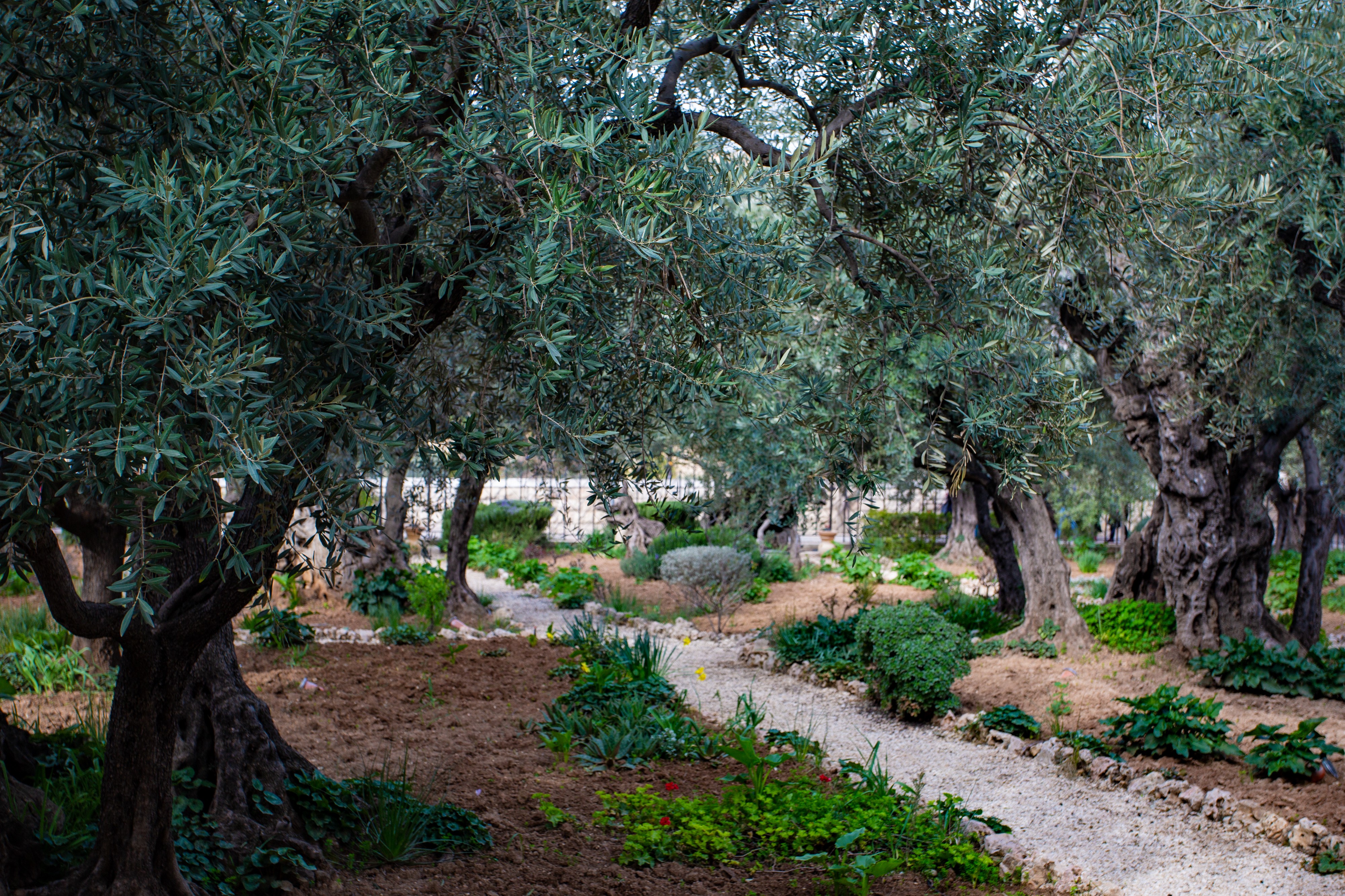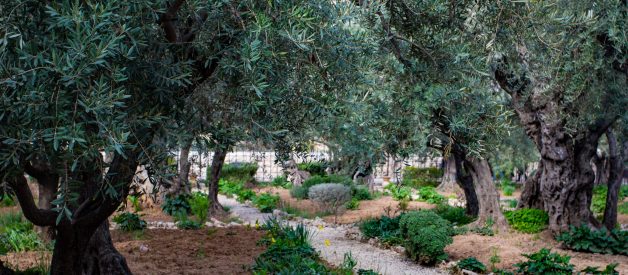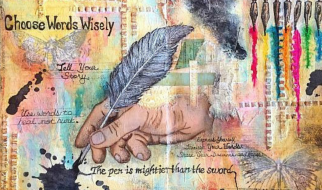He doesn?t like suffering any more than we do.
 Photo by Stacey Franco on Unsplash
Photo by Stacey Franco on Unsplash
There is a scene in the 1978 movie Superman that has stuck with me since I was a kid.
The evil genius Lex Luthor has launched nuclear missiles toward two U.S. cities. Superman finds Luthor?s hideout and demands Luthor hand over the detonator. As he searches for it, Luthor tricks Superman into opening a box of kryptonite.
We see the fear in Superman?s eyes as he gazes at the glowing piece of green rock. The Man of Steel, once so confident, melts into a puddle of weakness at the hands of the evil villain. With Superman?s powers restrained, Luthor is able to effortlessly push him into a pool.
The scene is memorable because of how vulnerable our hero becomes. It?s not fun to see Superman flailing helplessly in a pool when he should be saving the world. When Superman is standing tall, then I?m not worried if aliens from Krypton are trying to take over the world. He?s got things covered. But if Superman looks afraid, then I?m terrified!
I get a similar feeling of uneasiness when I read about Jesus in the Garden of Gethsemane. The Garden is the last place Jesus goes before his arrest and crucifixion. It is the quiet before the storm and the place where we see Jesus at his most human. Maybe a little too human for our tastes.
Jesus Embraces Sadness & Fear
Jesus takes his disciples to Gethsemane after eating the Last Supper. (Gethsemane means ?oil press? in Aramaic. It was a garden filled with olive trees.) When they arrive, Jesus takes his three closest disciples ? Peter, James, and John ? aside. Jesus is feeling anxious and desires the companionship of his friends. He confides in them, ?I?m very sad. It?s as if I?m dying. Stay here and keep alert.? (Mark 14:34, CEB)
Jesus was very sad.
There is a stigma around sadness, especially among Christians. We think we shouldn?t be sad because we have ?victory in Christ.? But here we see Jesus give in to the weight of grief. If we deny our sadness, then we?re denying part of our humanity ? a part Jesus embraced.
Jesus Prays an All-Too-Human Prayer
Jesus then leaves his friends to go pray by himself. What kind of prayer do we expect Jesus to pray?
Thank you, Father, for this awesome challenge.
Or, Yes, I know I can handle whatever?s coming with you by my side.
But that?s not the prayer Jesus prays. Instead, he utters words we might say.
Abba, Father, everything is possible for you. Please take this cup of suffering away from me. (v. 36)
Jesus is terrified about what?s to come. He knows the agony he?s about to endure, and he?s not looking at it through ?holy-colored? lenses. His prayer isn?t, ?God get me through this.? It?s, ?God, get me out of this!?
We All Know Suffering
We have all wanted God to get us out of something. It could be the 9th grader praying for her teacher to cancel the math quiz. Or the cancer patient praying for different lab results.
My suffering isn?t the same as your suffering, and it doesn?t do much good to debate whose pain is worse. But we can empathize with each other. We can be sad with each other.
In Luke?s telling of this story, he adds this detail:
?And being in anguish, [Jesus] prayed more earnestly, and his sweat was like drops of blood falling to the ground.? (Luke 22:44)
Luke was a doctor, and he wanted us to know the physical manifestation of Jesus? anxiety. Beads of sweat as thick as blood droplets ran down Jesus? face.
In Gethsemane, Jesus shows us he doesn?t like suffering any more than we do. On his knees, Jesus doesn?t look like Superman. He looks like me. He looks like you.
?Please take this cup of suffering away from me.?
It?s okay for us to pray this prayer. I?ve prayed it several times throughout my life.
But Jesus doesn?t end the prayer there. He tacks on another sentence. It?s a sentence I leave out because I don?t have the courage to pray it.
Jesus added, ?Yet I want your will to be done, not mine.? (v. 36)
Jesus was willing to face the suffering head-on if that?s what God wanted of him. When he hears the rustling of soldiers approaching, he decides to face whatever comes next. Instead of hiding, he steps out into the open and tells his friends to brace themselves.
?The time has come for the Human One to be betrayed into the hands of sinners. Get up! Let?s go! Look, here comes my betrayer.? (v. 41?42, CEB)
What?s the Lesson of Gethsemane?
I used to think the lesson of Gethsemane was to be like Jesus and face our suffering bravely. We should ?drink the cup,? even when we don?t want to. But I?m not sure that?s the case.
Between prayers in Gethsemane, Jesus went back to the spot he left his friends. Maybe he wanted their encouragement. But every time he did, he would find them asleep.
Then he returned and found the disciples asleep. He said to Peter, ?Simon, are you asleep? Couldn?t you watch with me even one hour? Keep watch and pray, so that you will not give in to temptation. For the spirit is willing, but the body is weak.? (v. 37?38)
When Jesus says the body is weak, I don?t think he?s being critical. He?s being truthful.
Jesus knows my spirit may be committed to following him, but my body is weak.
We are tired. We are weary.
I want to wake up at 5 am each morning and devote two hours to prayer and Bible reading. But my body is weak.
I want to volunteer more and help my community. My body is weak.
I want to face trials and suffering with maturity and patience. But my body is oh, so weak.
I want to drink the bitter cup of suffering as Jesus did, but I can?t bring myself to do it. I?m far too weak.
Gethsemane reminds us that Jesus drank the cup for us. He knew Peter and the rest of his friends would soon abandon him. And yet he faced the agony of the cross for them. And us.
Does This Mean We Don?t Have to Face Suffering At All?
I wish!
It means Jesus is in our suffering with us. It means Jesus is our strength when we?re weak. It means it?s okay to feel sad, afraid, and lonely because Jesus felt those things too.
It means when we are in our own Gethsemane, praying for the cup to pass us by, we are not alone. Jesus is there, keeping watch. He kneels beside us, wraps one arm around us, and with the other takes the cup from our hands.
And, with beads of sweat dripping down his forehead, he looks at us and says, ?I will drink this with you.?
Join my email list to receive more messy, broken articles like this one.


